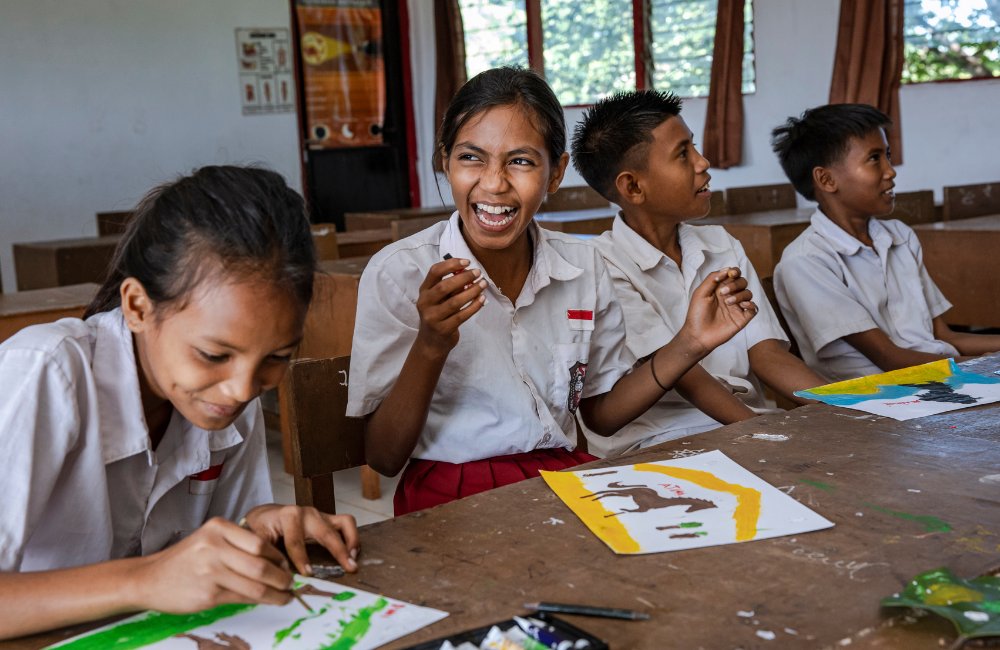Solar power is bringing water and new hope to communities in Indonesia
“I love this village. The green scenery with lots of fields,” says 12-year-old Atika.
But in the community where Atika lives in East Sumba, Indonesia, the signs of drought have become impossible to ignore. “The trees are too brown…,” she says. “The fields are burned.”
The drought has not only impacted the livelihoods and food supply for Atika’s village but has also led to lowered school attendance among children, who had to skip class to help their families fetch water from distant springs.
Acting early to save lives
Around the world, the climate crisis is threatening children’s learning, health, wellbeing and safety. But at least half of all humanitarian crises are predictable, meaning there is often ample opportunity to act before families are impacted.
Research shows that the earlier we act to reach those most in need, the more we can save lives and offset the economic impacts of the disaster, improving longer-term outcomes for communities. That’s why, thanks to our compassionate supporters, Save the Children is helping deliver direct climate action in over 50 countries including Indonesia – working with communities to adapt to climate shocks and to strengthen their ability to anticipate, prepare, respond and recover.
The flow on effects of water access
Atika and her cousin collect water from a solar powered water pump built by Save the Children in their village.
This year, Atika doesn’t have to walk so far, and nor do her friends and neighbours. Thanks to supporters like you, Save the Children and our local partner have introduced a series of life-changing initiatives, including a solar powered water system that pumps water to taps in the community.
People now have clean water to drink nearby, and effective irrigation for the crops they rely on for food. It’s the first of many signs that this community’s climate resilience is growing; and part of a program of Anticipatory Action, which is harnessing community expertise and a deep understanding of climate change to protect villages – and lives – like Atika’s.
This is a tangible difference from the support of people like you. Through donations to the Children’s Emergency Fund, programs like Anticipatory Action receive the much-needed funding for the benefit of communities.
A thirst for knowledge
School attendance is also improving now that water is accessible. It’s further boosted by the cash assistance we’ve provided to families - a big help to those who couldn’t afford to pay for uniforms or school fees.

Atika and her classmates enjoy taking part in a creative activity at school.